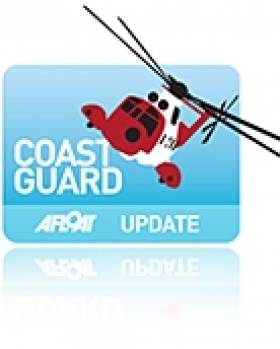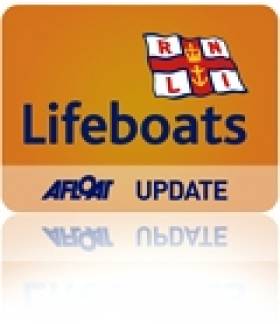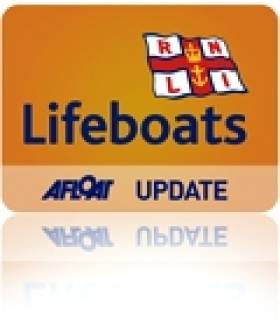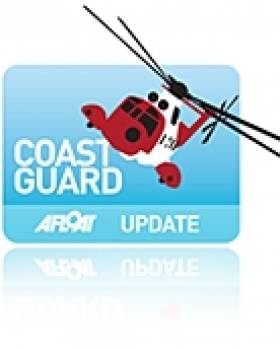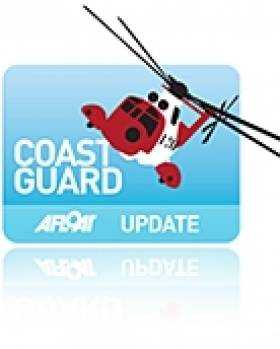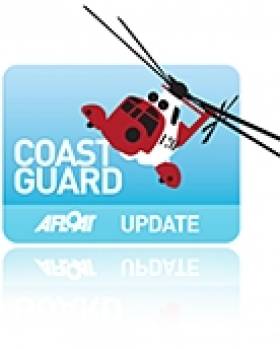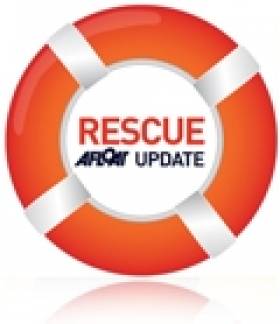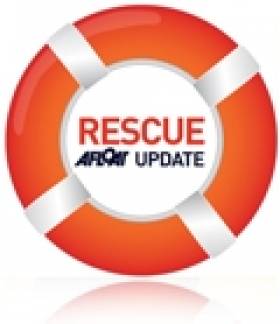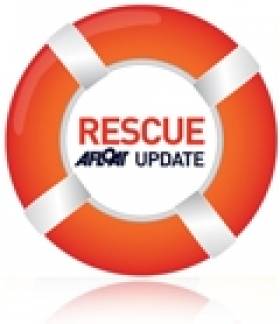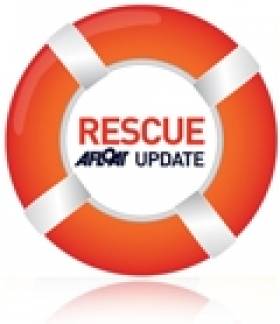Displaying items by tag: Search and Rescue
Decision on UK Coastguard Cuts Next Month
The final decision on plans to streamline the UK's network of coastguard centres will be taken next month, the News Letter reports.
As previously reported on Afloat.ie, the station at Bangor - Northern Ireland's only 24-hour search and rescue co-ordination centre - is at risk of closure under the proposed cuts.
Shipping Minister Mike Penning says the decision will be announced on 19 July, following the report of the Commons Transport Select Committee next week, after which a second consultation period will begin.
He reportedly told a Westminster debate last week that "no change is not an option".
Northern Ireland MPs voiced their opposition at the debate to any reduction of service at Bangor, with David Simpson of Upper Bann saying that it "would have a significant effect on the levels of service and rescue".
The News Letter has more on the story HERE.
Girls Rescued After Strong Winds Sweep Canoes Out to Sea
The Irish Examiner reports that the girls were with an instructor from an adventure centre at Clogher Beach, Co Louth when they got into difficulty.
Lifeboat operations manager Declan Levins spotted the group in trouble from the Clogher Head Beach station and a rescue operation was immediately mounted. None in the group was harmed.
Donation for Bangor Lifeboat Crew
RNLI Bangor's volunteer lifeboat search and rescue crew were pleased to receive a donation of £500 from the Bangor Marina Berth Holders Association this week.
Association chairman Martin Wilson said: "Every year our members raise funds for various local nautical charities and this year we decided that the RNLI Lifeboat at Bangor would be one of our worthy causes."
Bangor RNLI operations manager Kevin Byers said that the RNLI "is always grateful to receive funds, being a charity we are totally reliant on suchdonations. It allows us to provide 24-hour emergency cover and to continueto save lives at sea."
He added: "I would like to thank the Bangor Berth Holders Association for their support."
'Grave Consequences' If UK Coastguard Stations Close Says Union
Union leaders and seafarers have spoken out over the proposed closure of coastguard stations across the UK as a parliamentary committee begins its inquiry into the cutbacks.
Northern Ireland's only full-time search and rescue centre at Bangor is one of 11 stations under threat of closure under plans spearheaded by Shipping Minister Mike Penning to streamline Britain's coastguard network down to just seven bases.
According to the Belfast Telegraph, officials from mariners' union Nautilus International told MPs at the Commons Transport Select Committee that there should be an "absolute minimum" of 11 stations across the UK, lest there be "grave consequences for safety in UK waters".
British Prime Minister David Cameron has promised to rethink the proposed reforms if they pose any threat to safety at sea. The Labour Party has already branded them as "ill-thought-out madness".
The public consultation on the proposed changes is set to close on 5 May.
Irish Coast Guard Chopper Deal Could Be Model for UK
The director of the Irish Coast Guard has outlined the thinking behind its recent €500m deal for helicopter search and rescue services.
Chris Reynolds told Rotorhub that a simplified model based on key critera was adopted when choosing a bigger for the contract, which was awarded to CHC Ireland last year.
"With our contract, we essentially wanted to continue with what we already had, but with new technology," he said.
Rotorhub reports that the Irish Coast Guard formed a Future Helicopter Study Group to discuss the service's needs before the tender process which led to the 10-year deal for five Sikorsky S-92s.
The process stands in contrast to SAR-H, the UK's programme to overhaul its helicopter fleet which collapsed last year.
"If the UK needs to be looking at a new interim contract, they could look at how we did it," added Reynolds.
Rotorhub has more on the story HERE.
Possible Rethink on UK Coastguard Cutbacks
The British government could be ready to change its plans for the streamlining of the UK coastguard service.
The Belfast Telegraph reports that while there will be no turning back on reforms, concessions such as closing fewer stations and keeping more open 24/7 are being considered - which could save Northern Ireland's only full-time coastguard base from the chop.
The centre at Bangor was earmarked for scaleback or closure under plans proposed by Shipping Minister Mike Penning, But he was forced to extend the consultation period, with a spokesperson saying that "the government is committed to taking all points of view into account before decicing how best to proceed".
Shadow Shipping Minister Jim Fitzpatrick said: “We were concerned about the level of cuts initially proposed and are pleased that the Government appears to be reviewing its plans."
The Belfast Telegraph has more on the story HERE.
Woman Rescued from Water at Howth Head
Irish Coast Guard helicopter Rescue 116 was on hand Wednesday to save a woman seen in the water close to cliffs near the Baily Lighthouse on Howth Head.
SAR Ireland reports that the helicopter was on a training exercise just up the coast in Malahide when passers-by raised the alarm with the Marine Rescue Coordination Centre (MRCC).
Rescue 116 sped to the scene and after a short low-level search the woman was spotted and taken to a waiting ambulance at the coastguard base for treatment.
The Irish Times says Howth gardaí are investigating the incident.
Flood Evacuation Exercise in Fingal This Weekend
Members of the public are invited to attend a major flood evacuation training exercise this Saturday at Broadmeadow Esturary in Swords, Co Dublin.
Rescue and boat rescue crews from the Irish Coast Guard are sceduled to join teams from the Dublin Fire Brigade, the Civil Defence Fire Service and Gardaí in the exercise, which will simulate the rescue of a group of people stranded after a flash flood.
The crews will test water rescue and river search procedures, with an emphasis on general water safety and providing assistance to other search and rescue agencies.
The excercise will begin at 11am on Saturday 16 April and will last for one hour. Members of the public are welcome to observe must must obey any instructions and must not interefere with the exercise.
For more information contact Bill Powderly, assistant chief Civil Defence officer with responsibility for the Fingal Area, at [email protected] or 086 380 5197.
Skerries Search Called Off as Bodies of Fishermen Found
The bodies of two fishermen missing off the Skerries coast since last Friday have been found.
Ronan Browne, 26, and David Gilsenan, 41, had not been seen since setting out from Skerries harbour on the morning of 1 April.
As previously reported by Afloat.ie, the alarm was raised when they had failed to return by 6.30pm and a coast guard search began immediately.
Naval vessels joined the operation as the search continued following the discovery of an upturned hull and an oil slick near Clogherhead, Co Louth.
According to RTÉ News, at 1.40am yesterday morning a fishing vessel discovered the bodies of the two men caught in its fishing gear some five miles east of Clogherhead. They were recovered by RNLI lifeboat.
RTÉ News has more on the story HERE.
Kinsale Coast Guard in Daring Cliff Rescue
The Irish Coast Guard's Kinsale unit was involved in the dramatic rescue of a man clinging to the sheer side of a cliff on Sunday.
TheJournal.ie reports that the man, a 20-something English tourist, had been caught on the beach below at high tide and tried to climb the cliff face to escape, but got into difficulty half-way up.
The man was spotted by a couple walking the clifftop near Garrettstown Beach, who alerted the Old Head of Kinsale coastguard unit.
A cliff rescue expert abseiled down to attach a lifeline and harness, and the man was lifted to safety. He was treated at the scene for cuts and bruises.
Unit officer in charge Eddie Butler told the Irish Examiner that the man didn’t know how he had held on as long he did.
"When we arrived and saw the situation, I didn’t think we’d save him. I think we got to him just in time," said Butler. "The water was raging beneath him. If he had lost his grip and fell in, he would have been lost."
Elsewhere, six people were rescued from a sinking cruiser in the River Shannon on Sunday afternoon following its collision with a bridge in Killaloe, Co Clare.
According to The Irish Times, two members of the Irish Coast Guard's Killaloe unit arrived quickly on scene two help the six occupants and their dog to safety on the riverside.
The Killaloe unit reports that the cruiser was subsequently run aground in the shallows at Ballyvalley to prevent its sinking.


























